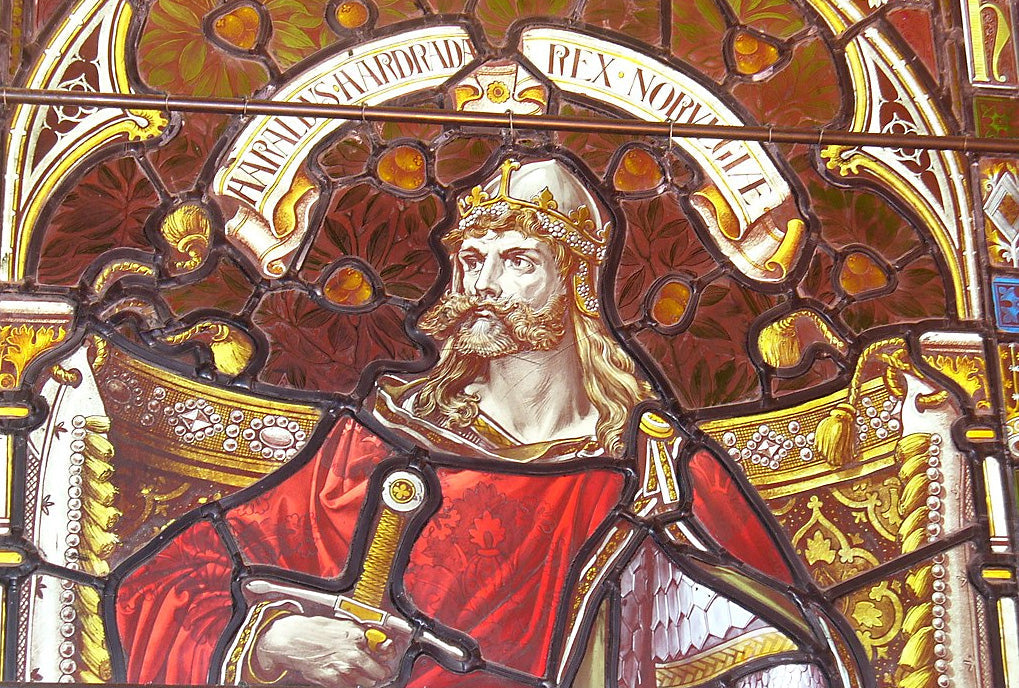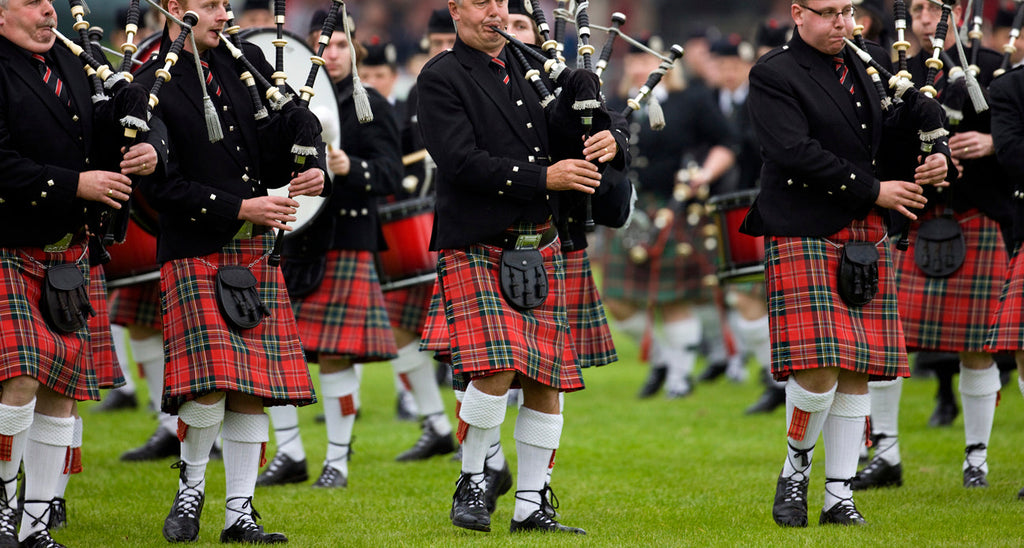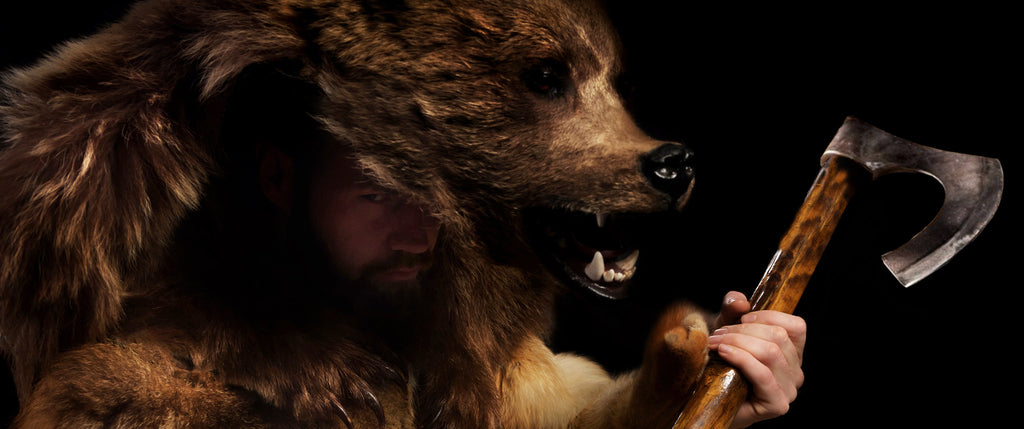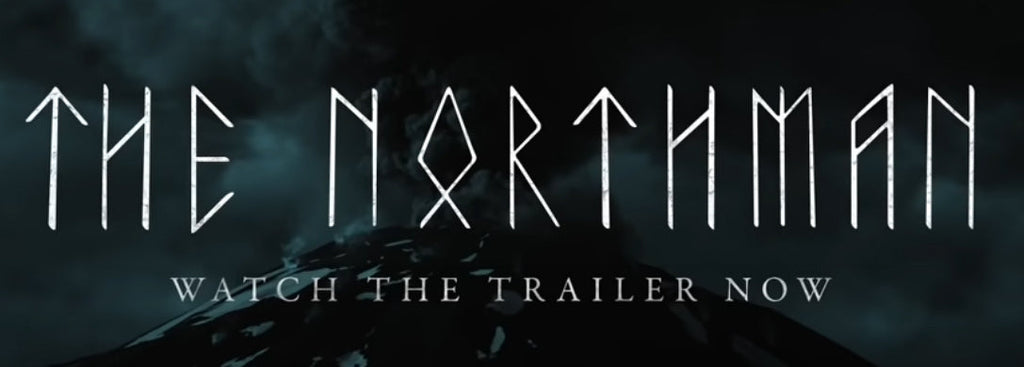
Where are Vikings from?
Posted by Sons Of Vikings on
Originally, Vikings came from Scandinavia. That is, the lands that are now Norway, Denmark, and Sweden. These countries came about because of the Vikings. Their changing borders eventually coalesced after bloody struggles between numerous Viking Sea Kings.
However, Vikings were people with outward momentum ...

What is a Viking?
Posted by Sons Of Vikings on
Thanks for visiting our blog! As a thank-you, enjoy 15% off your first order in our online Viking Shop with the discount code BLOG15.Vikings were maritime traders, raiders, mercenaries, and settlers originally from Scandinavia who took Europe by storm beginning in the Early Middle Ages. They formed a trade network, known as the Northern Arc, stretching from Greenland to the Middle East. They founded and settled in Iceland and Greenland, and there is firm archaeological evidence that they were in North America (Canada) for about 200 years (almost 500 years before Columbus landed in the Caribbean). Many nations of Europe developed through the Vikings’ help or through opposition to their pressure. What’s in a name?Vikings is a broad term that applies...

Viking FAQ’s
Posted by Sons Of Vikings on
Below are links to short answers for the most commonly asked questions on Vikings. These are direct and simple answers on a complicated subject, so they only serve as a starting point for future exploration. We hope you find them helpful. Viking FAQ's: What is a Viking? Where are Vikings from? What language did Vikings speak? What did Vikings look like? What happened to the Vikings? What did Vikings eat? What did Vikings drink? When was the Viking Age? What does the word Viking mean? When did the Vikings invade England? What did Vikings wear? What countries where Vikings from? Why are they called Vikings? About Sons of Vikings Sons of Vikings is an online store offering hundreds...

Viking Roots of the Royal Families
Posted by Sons Of Vikings on
Thanks for visiting our blog! As a thank-you, enjoy 15% off your first order in our online Viking Shop with the discount code BLOG15.Vikings shaped three centuries of intense cultural, economic, demographic, and political change. Though the world would transform exponentially in the thousand years since the Viking Age (circa A.D. 793-1066), many of the changes the Vikings brought are still with us. These contributions include countries like Norway, Sweden, Denmark, England, and many more, which took their shape during the crucible of that period. Some of these countries are still ruled by royal families founded by Vikings. Norway Today, Norway is ruled by King Harald V of the House of Glücksburg. Though this dynasty is relatively new, King Harald’s lineage...

Did Vikings Wear Kilts?
Posted by Sons Of Vikings on
“Did Vikings wear kilts?” is a common Google search. The short answer is ‘no.’
Kilts did not show up until roughly 500 years after the Viking age had ended and Viking men wore pants, often with leg wraps below the knee.
However, did the Vikings (and their descendants) play an indirect role with the development of kilts and the Scottish culture that created them? The answer is ‘yes.’

In Defense of the Word ‘Viking’
Posted by Sons Of Vikings on
Some popular articles and internet commentary push back against the authenticity of the word, ‘Viking.' Increasingly, one hears gross overstatements and incorrect assertions, like “Vikings is a modern word,” or that the term did not appear until the 19th century. Some have even opined that there is little connection between the 8th-century ad hoc raids (such as Lindisfarne) with the empire-building of Cnut the Great or Harald Hardrada almost 300 years later. One recent article published in a mainstream popular history magazine went so far as to claim, “Vikings never existed.” We will prove these statements false below.

Viking Berserker Warriors
Posted by Sons Of Vikings on
Thanks for visiting our blog! As a thank-you, enjoy 15% off your first order in our online Viking Shop with the discount code BLOG15. Viking Berserkers Berserkers were battle-frenzied warriors devoted to the god Odin, who fought in a state of complete fury and reckless abandon. Berserkers were said to channel the bear's spirit (or, in the case of the the úlfheðnar, the wolf's spirit) and take on the berserkergangr – the berserker’s rage – to become almost invincible. But this incredible valor and prowess were accompanied by highly erratic behavior – howling and bellowing, biting the rims of their shields, bizarre physical movements, and sometimes even foaming at the mouth. Furthermore, according to some sagas, once the animal spirit had spent...

Amleth: The Real Viking Behind The Northman Movie
Posted by Sons Of Vikings on
Thanks for visiting our blog! As a thank-you, enjoy 15% off your first order in our online Viking Shop with the discount code BLOG15. A Viking movie also based on Shakespeare’s Best Play The Northman is already being hyped by some as "the definitive Viking movie" and the "most accurate Viking film ever made." Director Robert Eggers is well known for his artistic creativity, attention to fine detail, and respect for his source material. His previous movies include The Witch and The Lighthouse. Eggers co-wrote The Northman with Sjón, the Icelandic novelist and poet, and the project immediately attracted a stellar cast. In addition, an elite team of consultants worked on the film, including Swedish University Archeology Chair Dr. Neil Price...

Dwarves and Elves in Norse Mythology
Posted by Sons Of Vikings on
Norse mythology has made tremendous contributions to popular folklore and today’s fantasy. Elves and dwarves are but two of these elements that have become ubiquitous. Today, the word “elf” might make people think of Santa’s helpers or Elf on the Shelf or 'The Lord of the Rings’. However, the original elves and dwarves were not the "wee folk" of Victorian storybooks, nor the alternative humanoid races of modern sword & sorcery. They were supernatural beings that played a significant role in the world's past, present, and future, as the Vikings saw it. This article looks at what we know – and what we don’t know – about Viking elves (light and dark) and dwarves.

Vikings and Skiing
Posted by Sons Of Vikings on
The oldest depiction in Scandinavia skiing is a rock carving in Norway from about 4,000 B.C. Skis were found in Finland from 3,300 B.C. and a pair recovered from a Swedish bog date to 2,700 B.C. When 18th century explorers bumped into the Inuit and other aboriginals of northern Greenland, Canada, and Alaska, they found that they were as comfortable on skis as natives in Siberia.
